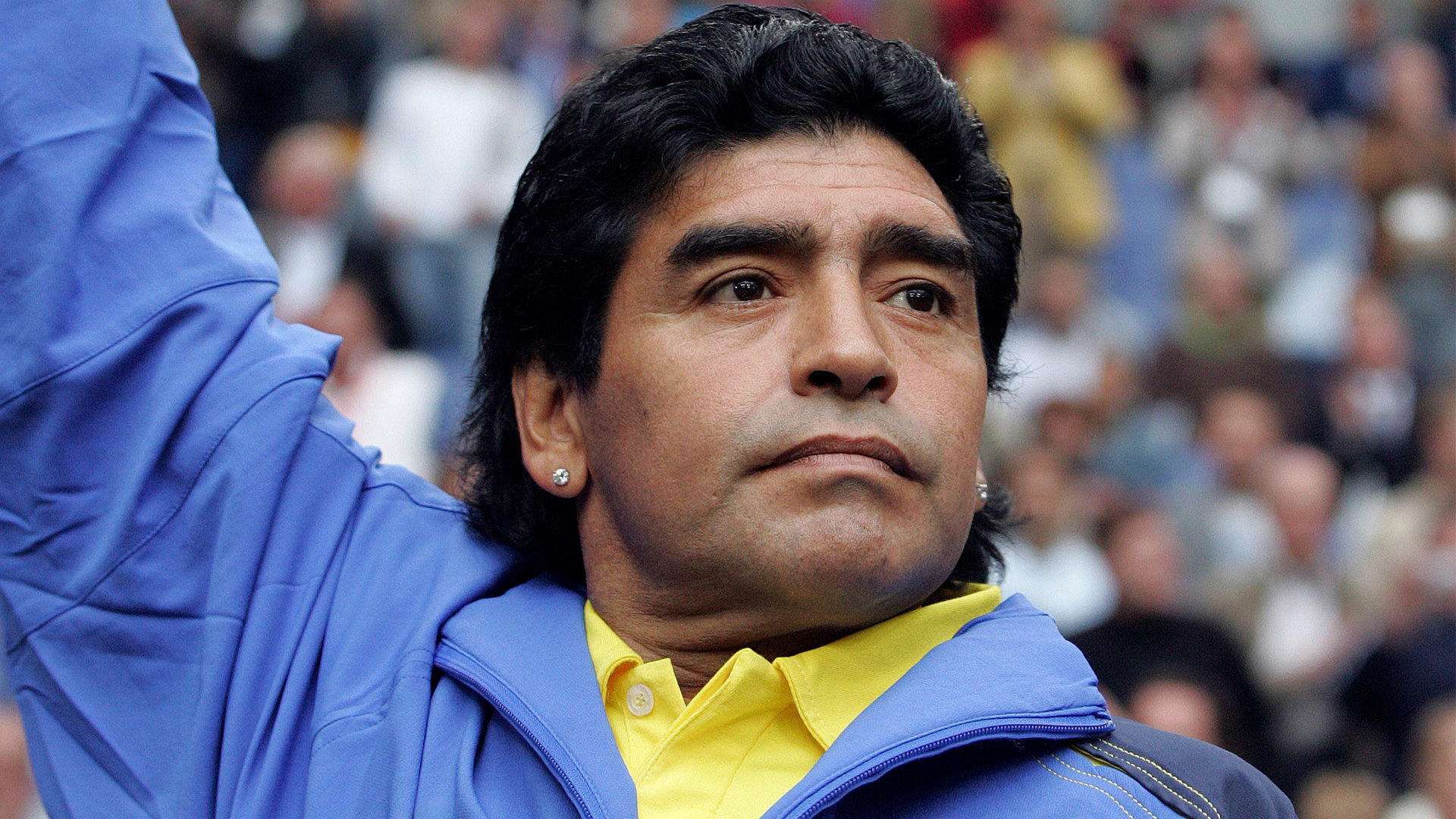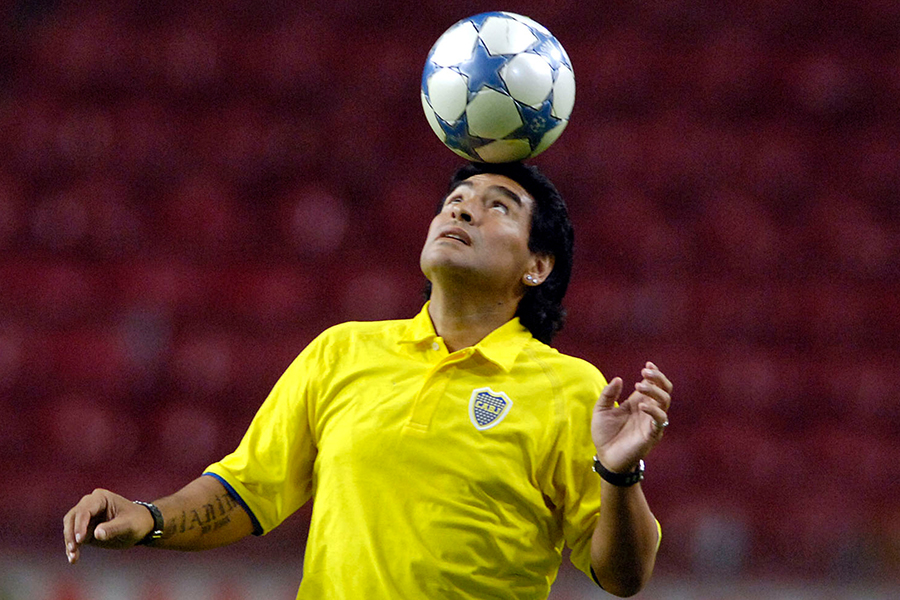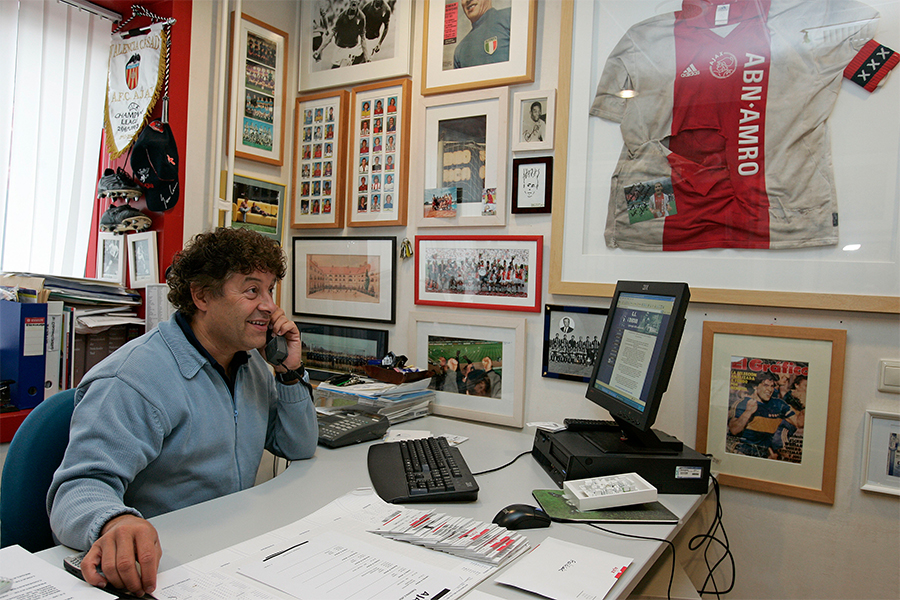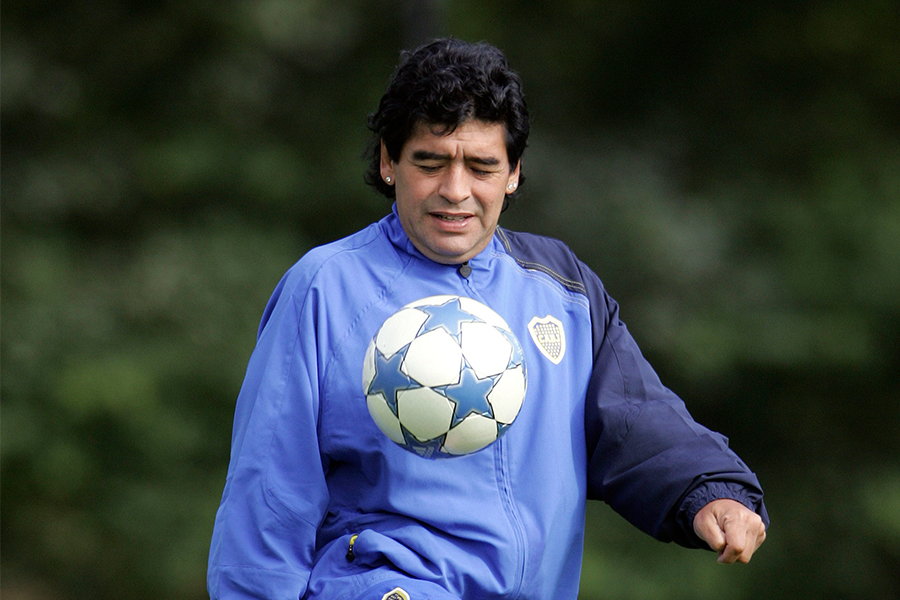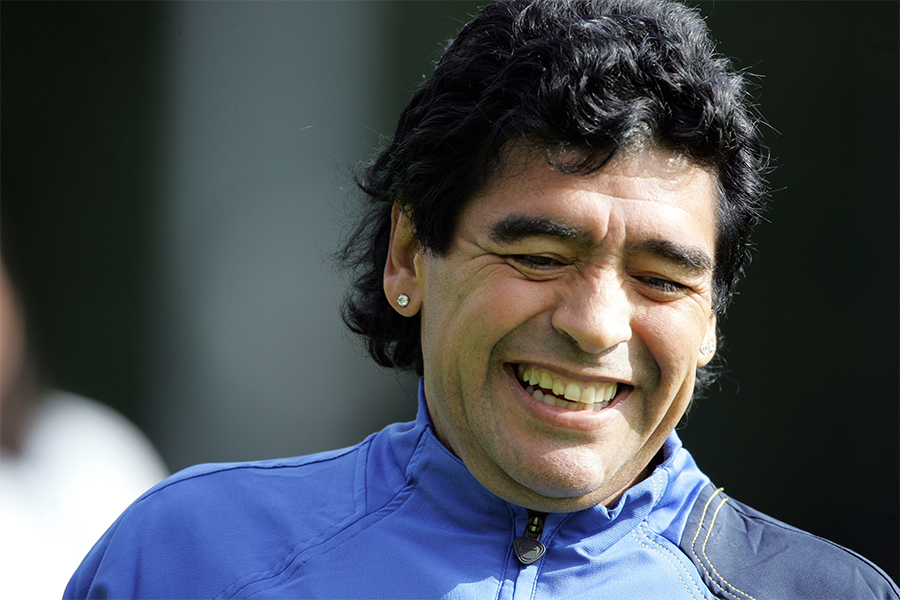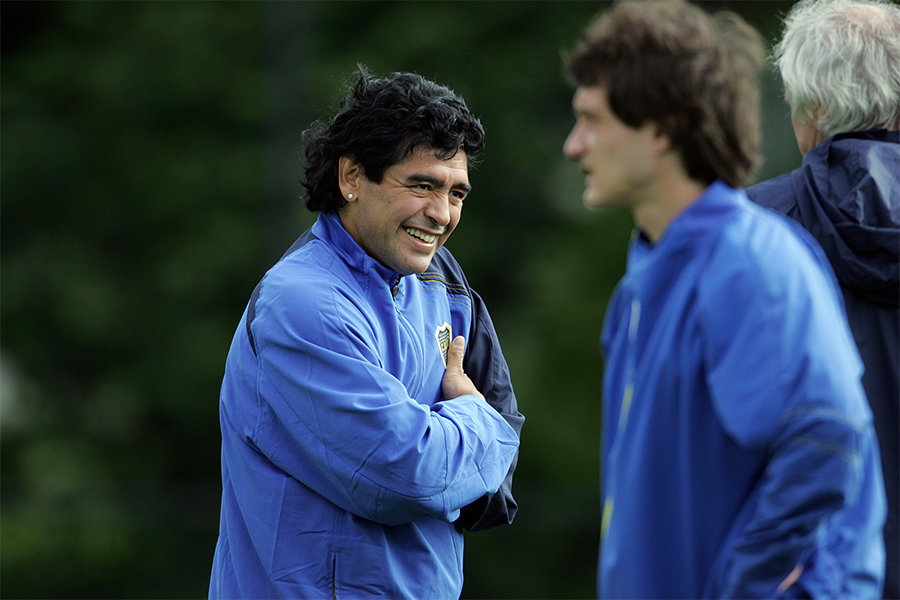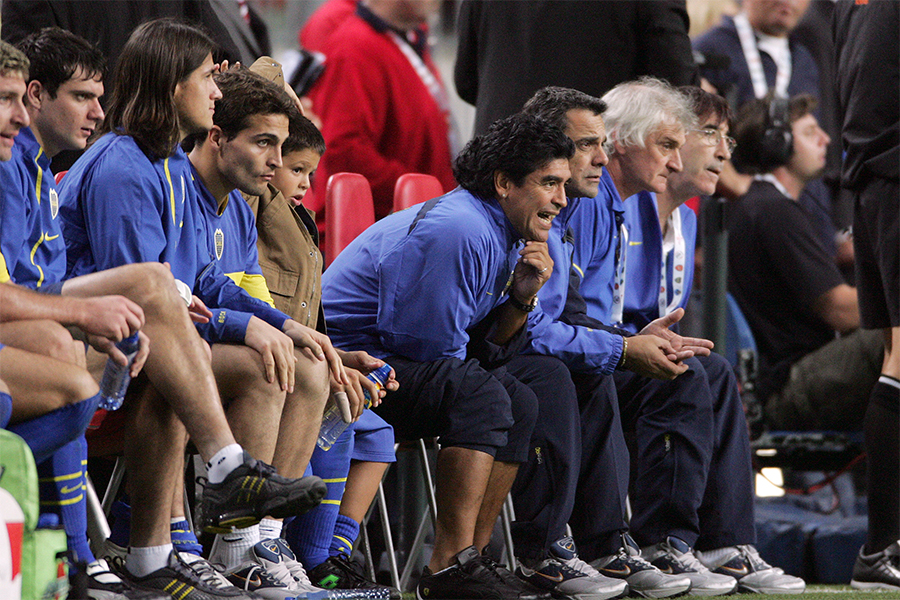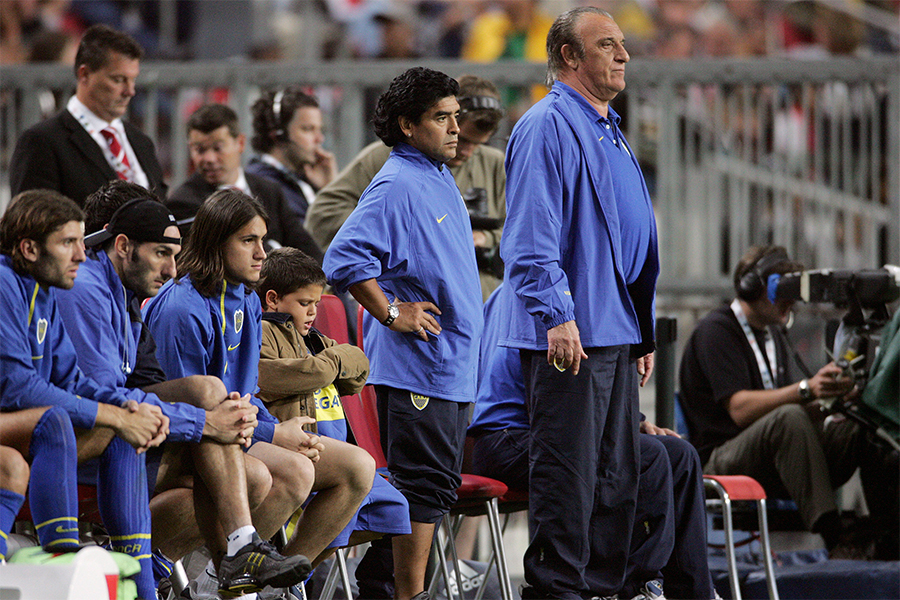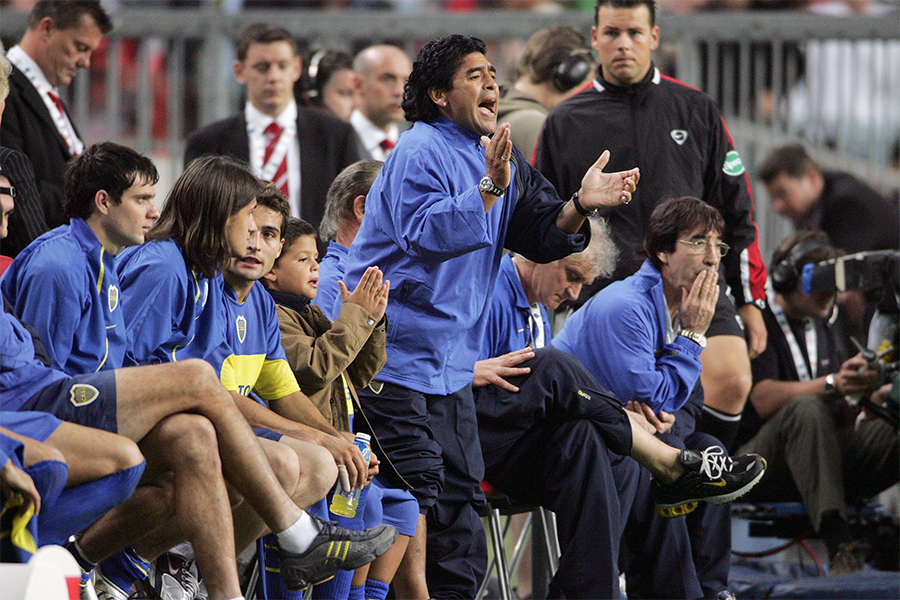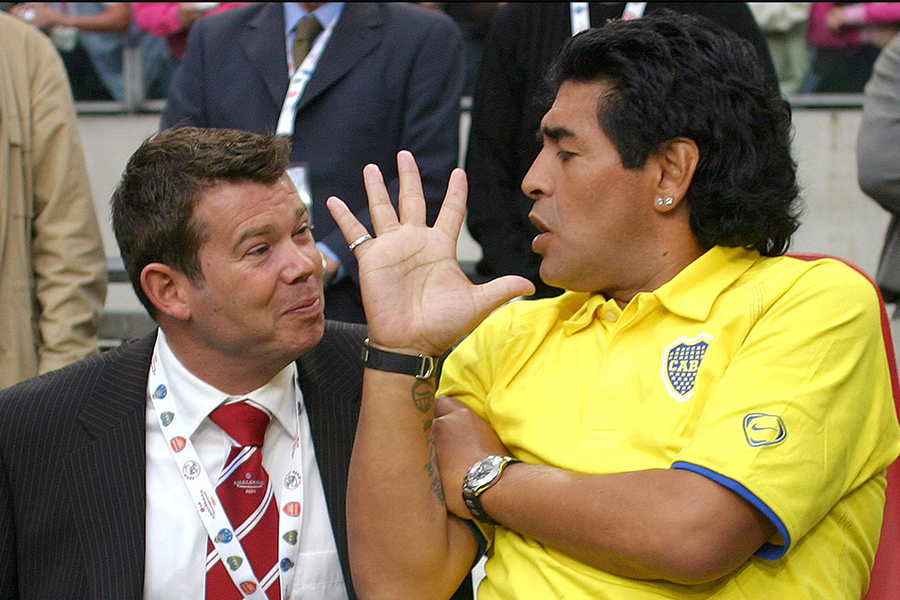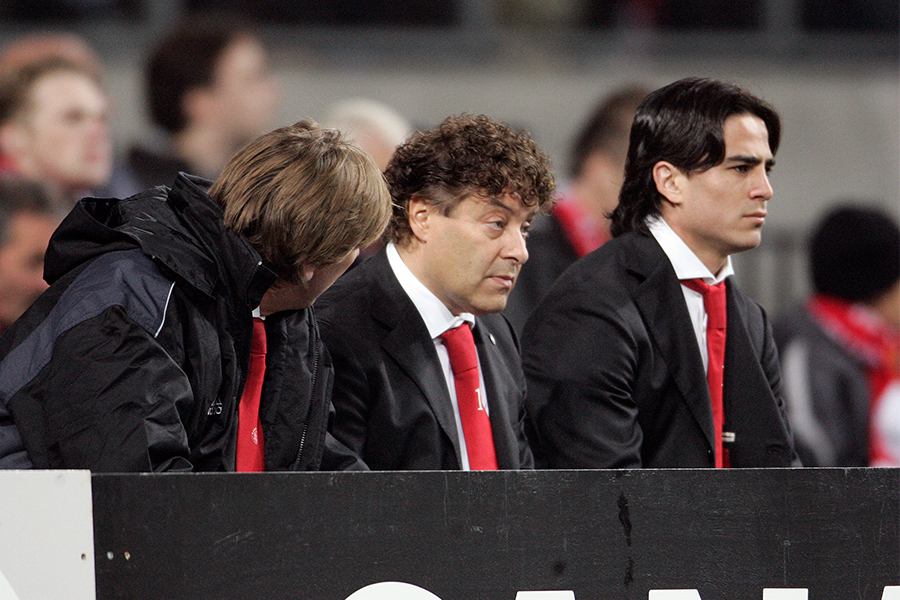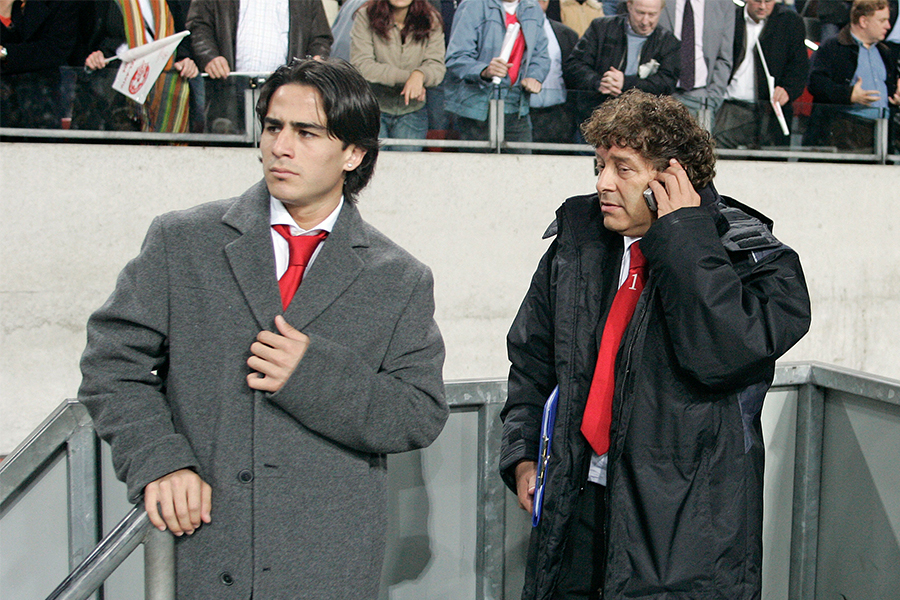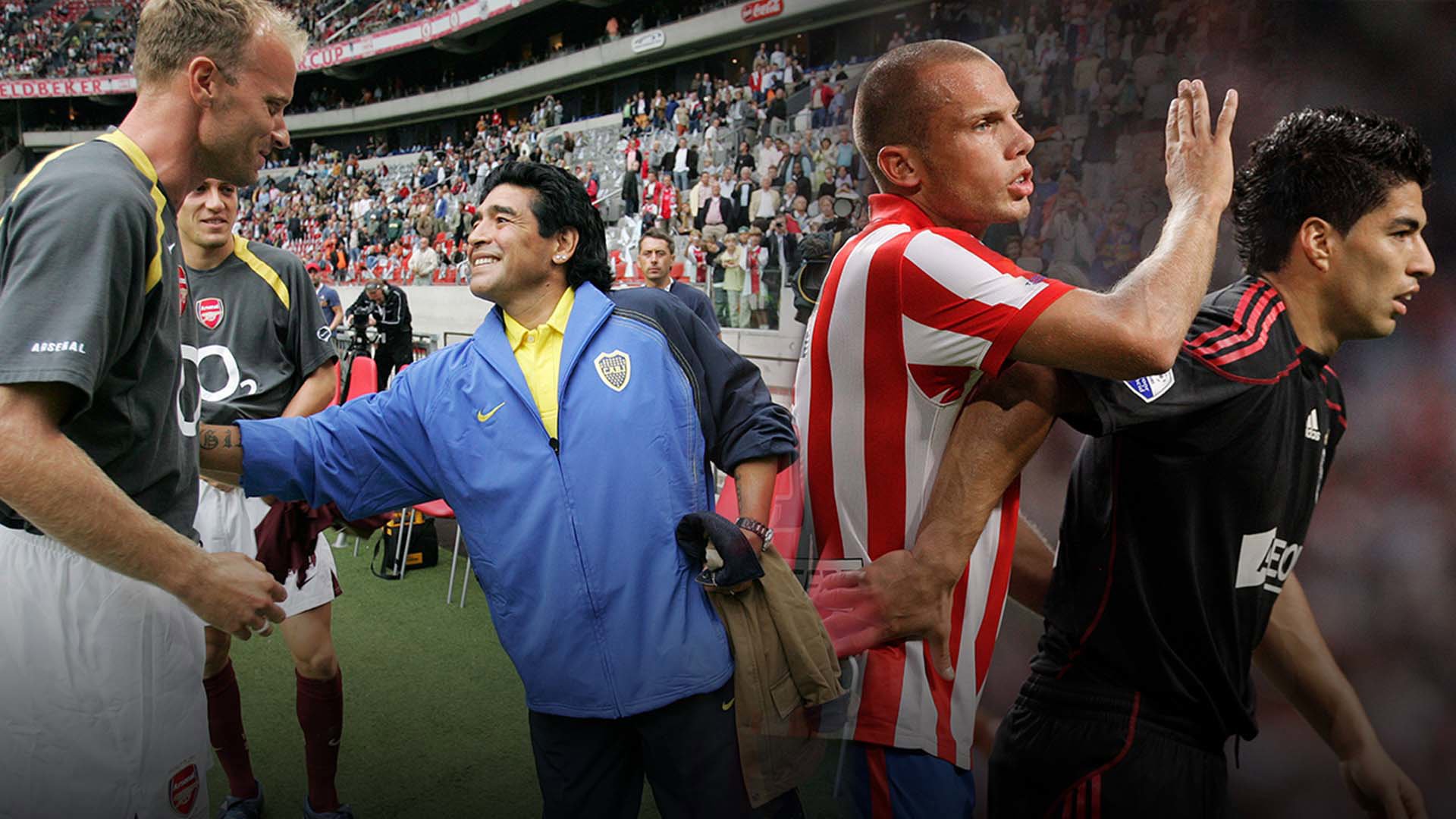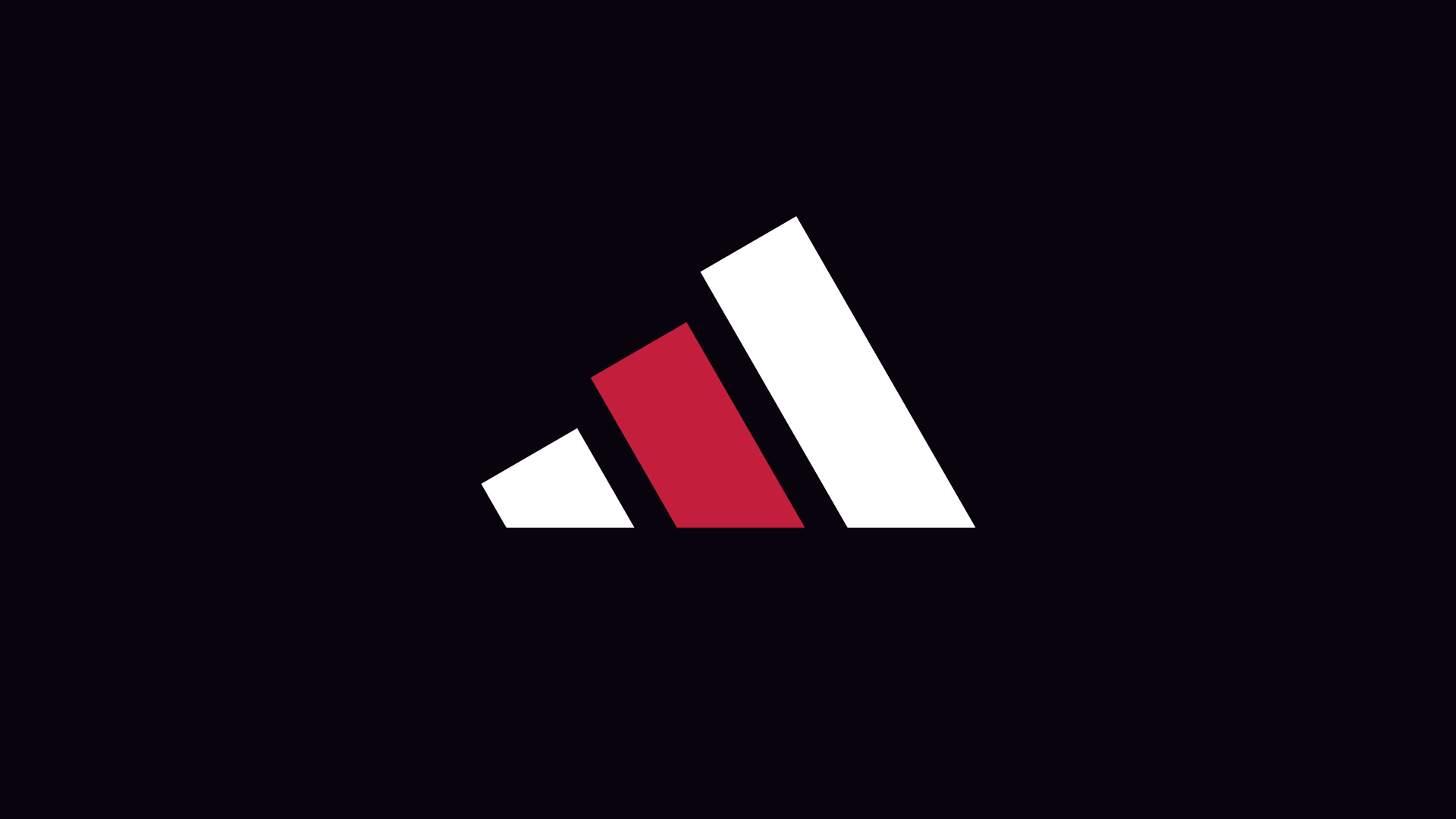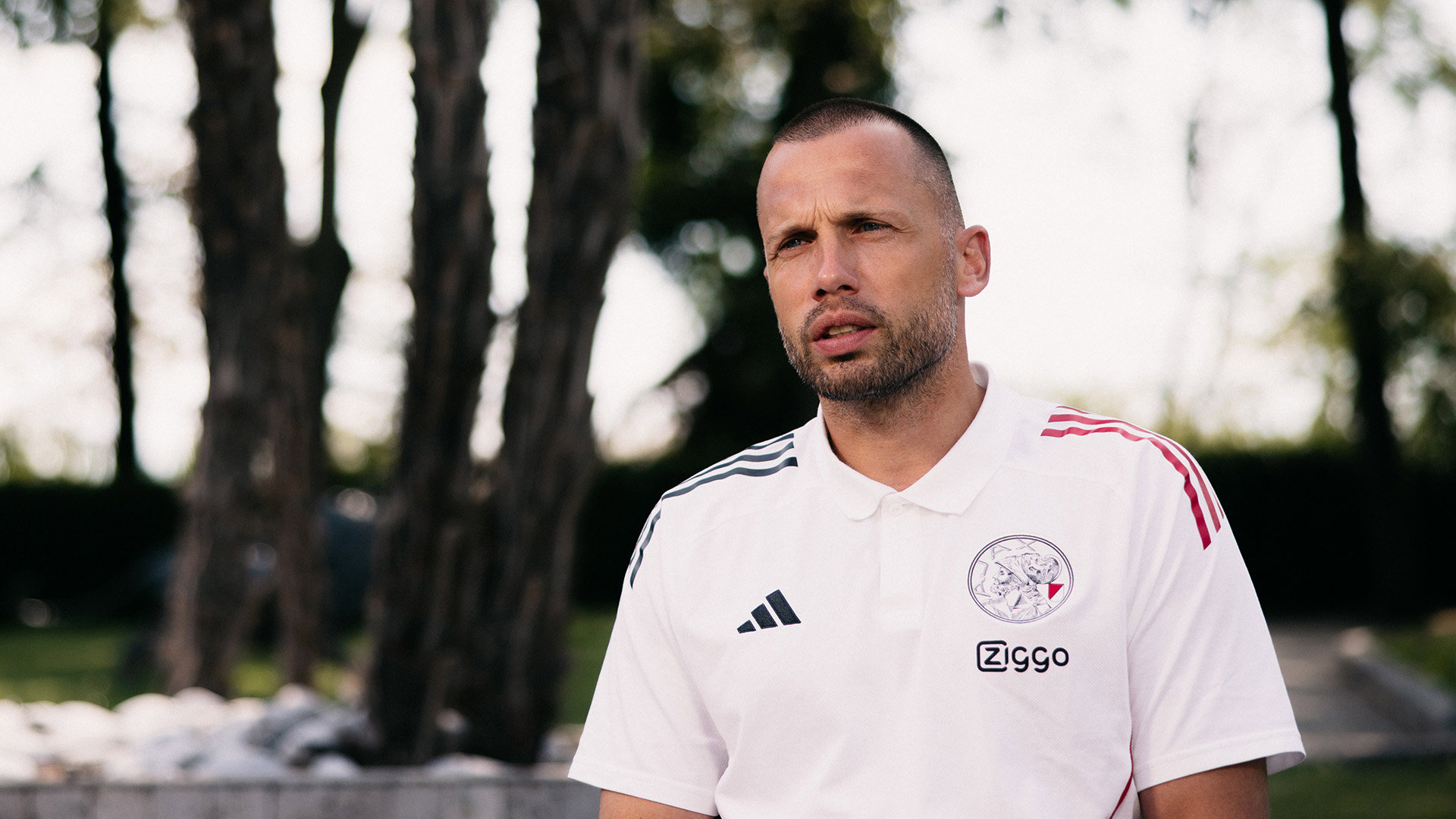It happened exactly twenty years ago on Amsterdam’s sacred pitch. For a brief while, one of the greatest players the world has ever known became a boy again. Away from the noise—just Maradona, the silent ArenA, and a ball. David Endt saw it unfold right in front of him. He even handed the ball to the Argentine legend.
It was the perfect ending to what was already an unforgettable day for the former Ajax team manager and press officer. "I remember a lot—almost everything—about that day," says Endt, now 71.
On 31 July, 2005, Ajax played Boca Juniors, Maradona’s favourite club. It was day two of the Amsterdam Tournament. Boca had already landed in the Netherlands, though without Maradona, who held a semi-official position at the club at the time. FC Porto and Arsenal also took part in the tournament, which had been relaunched in 1999 as a pre-season competition. The original idea dated back to Amsterdam’s 700th anniversary in 1975.
Ajax had lost their opening match to Arsenal. To give the tournament some sparkle, a win over Boca Juniors was welcome. At that time, Maradona was yet to arrive; he was due to start as vice-president of Boca on 1 August.
A phonecall
On match day, Endt arrived at the stadium early. "There was no one else there, just me. I had a small office near the dressing rooms. That office was my sacred place, a sort of shrine, filled with football memorabilia. There was something romantic about it."
"At one point, the porter from the dressing room corridor called me," Endt continues. "It was a vague story. He said there were three Argentinians at reception who wanted to come in. 'I can’t just let them in,' he told me. I said I’d go and have a look."
"I walked over and saw immediately through the glass doors who it was: Maradona. There he stood, flanked by two bodyguards. My heart started pounding. I brought them to my office. We introduced ourselves—sort of—in Italian; it was all quite quick. The bodyguards stayed in the hallway and I started chatting with Maradona."
"He asked me what I did and what my name was. 'David,' I replied. 'El David?' he asked. The David? I thought: what’s he on about? Then he said he'd heard of me. Diego explained: 'It's a bit of a quirk of mine, I like to stay in touch with players, just to see how they're doing. A few had spoken about you, said you were good to them. That’s how I know your name.'"
That Maradona—considered one of the greatest footballers of all time—knew Endt by name moved the former Ajax man deeply. "It's strange to hear that someone like Maradona knows your name. And it was lovely to hear that Argentine players had spoken fondly of me. There weren’t many of them at Ajax back then, but apparently they’d said good things."
"'From now on, we are hermanos,' brothers, said Maradona, standing up to embrace me. "'If I can ever do anything for you, I will. I can’t help everyone, but I want to help you.' He was incredibly warm, open, and kind. He made it clear he wanted an Ajax tracksuit. I called the fanshop and within an hour it was sorted. We spent half an hour, maybe forty-five minutes, chatting in my office."
"Then it started to get busier. People caught wind of it and wanted autographs or pictures. Time for Diego and his bodyguards to go. It was a very special meeting I’ll never forget."
The city buzzed
Maradona’s presence in Amsterdam didn’t go unnoticed. The city buzzed. The ArenA crackled with anticipation. For Erik van Leeuwen, communications officer for the Amsterdam Tournament, it was a once-in-a-lifetime moment. That day lives on beautifully for him.
For years, a photo of Maradona at the ArenA hung in the AZ stadium. The Argentine answered a question from Van Leeuwen by raising five fingers. Van Leeuwen, then AZ’s press officer and seconded to the Amsterdam Tournament, had seen countless football stars—but Maradona stood apart.
"After a gap year in Spain and Central America, my Spanish was pretty good. That helped, as I was the liaison between Maradona and the media. He wanted a suitcase full of cash to appear at an official press conference."
"When it was clear that wasn’t happening, I found an alternative. No formal presser, but he agreed to speak to the press for five minutes in the stadium’s tunnels. That’s what the five fingers were for. Photographer Ron Richel was sharp enough to snap it right at that moment. A unique image I’m still grateful for. Just like Maradona’s signature on a Boca shirt, with a personal message: 'For Erik.'"
Near-holy group of players
Van Leeuwen, who also worked for Ajax's comms team, understood the magnitude of Maradona’s visit. He would later work alongside Lionel Messi and Zinedine Zidane at adidas. "That’s a near-holy group of players, alongside Pelé and Johan Cruyff. Everything they do has massive impact. I don’t think Maradona even had an official title at Boca at the time, but everything revolved around him." With a smile: "And I think he ran the show, too."
Ajax lost the match 0–1 to Boca Juniors. But with Maradona’s presence, few remembered the result. Beforehand, Endt had sought out Mauro Rosales, an Ajax player and one of the Argentinians who had praised him to Maradona, for insight on Boca’s team.
"I always tried to help foreign players, especially the South Americans, with all sorts of issues," Endt explains. "It also helped me practise my Spanish. Mauro had amazing stories about Argentine football. The hierarchy at clubs, how young players showed respect to veterans. He told it beautifully."
"Anyway, Boca came to Amsterdam, and I asked him which player to watch. 'Fernando Gago,' he said. A great talent, apparently. After the match, I was on the pitch. Nothing special—until Mauro approached with a Boca player. He introduced me to the young Gago, who clearly had instructions. We chatted briefly, and he handed me his shirt. I cherish that shirt, but the real treasure is meeting Diego. A legend with a big heart. A truly golden memory."
